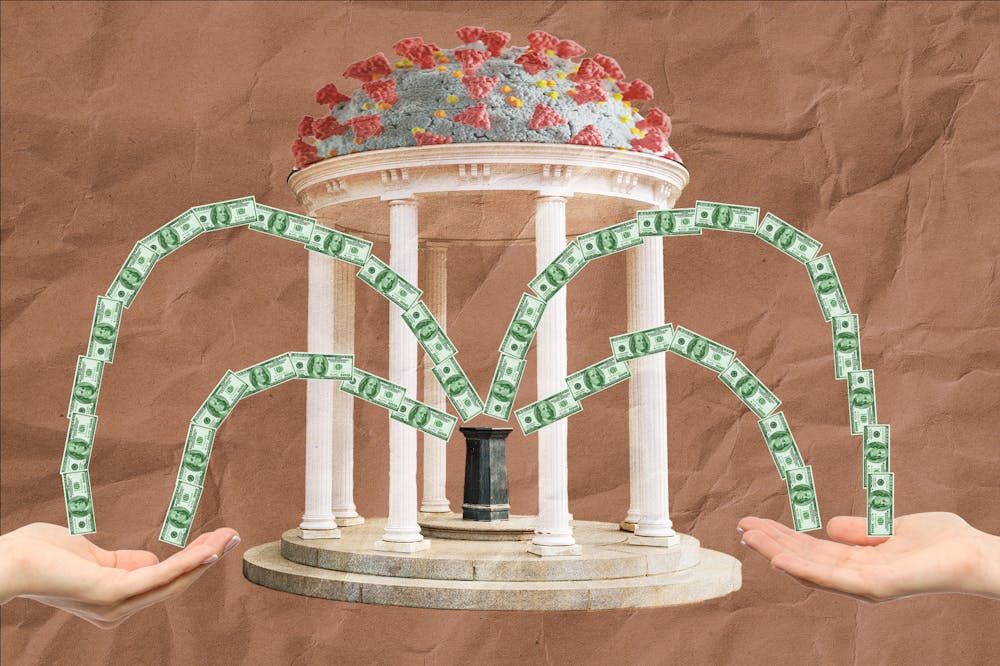The N.C. Supreme Court unanimously ruled last week that two students can proceed with their breach-of-contract lawsuit against the UNC Board of Governors. The students are seeking refunds for fees they paid to UNC and N.C. State University during the fall 2020 semester.
The lawsuit stems from August 2020 when plaintiffs Joseph Lannan and Landry Kuehn, who were enrolled at N.C. State and UNC, respectively, were sent home after their campuses closed due to rising COVID-19 cases two weeks into the semester.
For the rest of fall 2020, both universities canceled in-person classes, evicted students from on-campus housing, restricted transportation and closed campus facilities such as libraries, student unions, recreation centers and dining halls.
No other UNC System schools closed their campuses for the fall 2020 semester.
The lawsuit, filed in 2021, alleges that despite sending students home, N.C. State and UNC still charged students with mandatory fees for many of the on-campus services and activities they shut down. These expenses include student health services fees, campus security fees, transportation fees and others that were required to be paid for students to register for fall 2020 classes.
When campuses closed, students were no longer able to access the services covered by the mandatory student fees they already paid. By charging students but limiting access to the corresponding services, the lawsuit alleges that UNC and N.C. State breached their contracts with their student bodies.
The fees Lannan and Kuehn paid totaled $1,288.80 and $976.25, respectively. The plaintiffs filed the suit on behalf of themselves and other similarly situated students.
“The universities can't just make decisions willy-nilly that affect folks and then walk away from the consequences,” the plaintiffs' attorney David Stradley said.
After the lawsuit was initially filed, the BOG responded with a motion to dismiss on the grounds of sovereign immunity, a doctrine that prohibits the government, and arms of the government such as a public university, from being sued.




